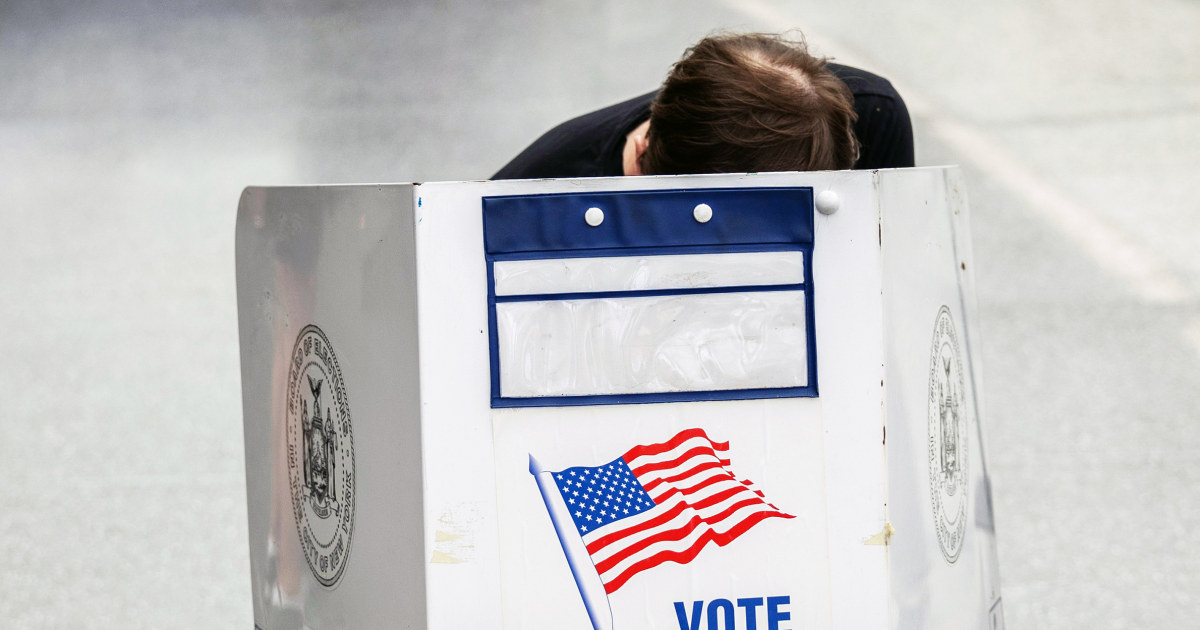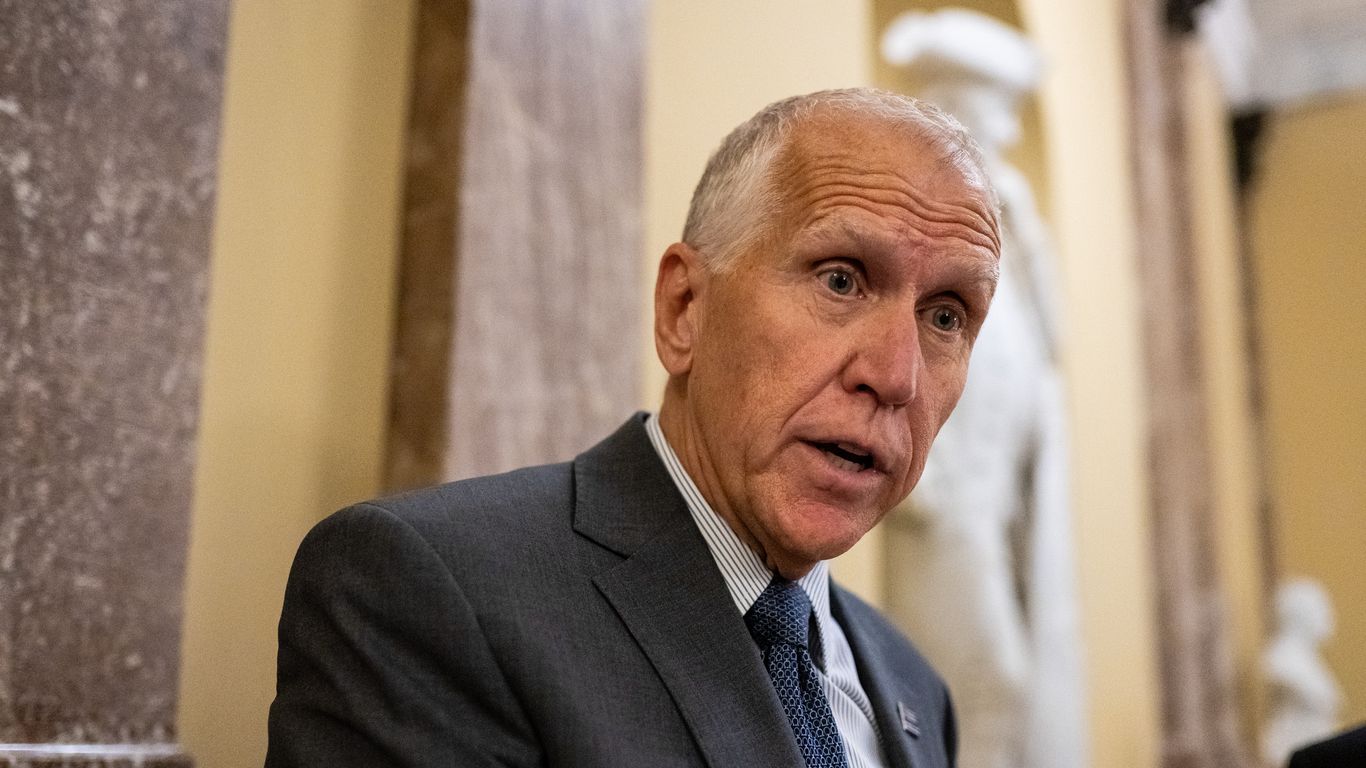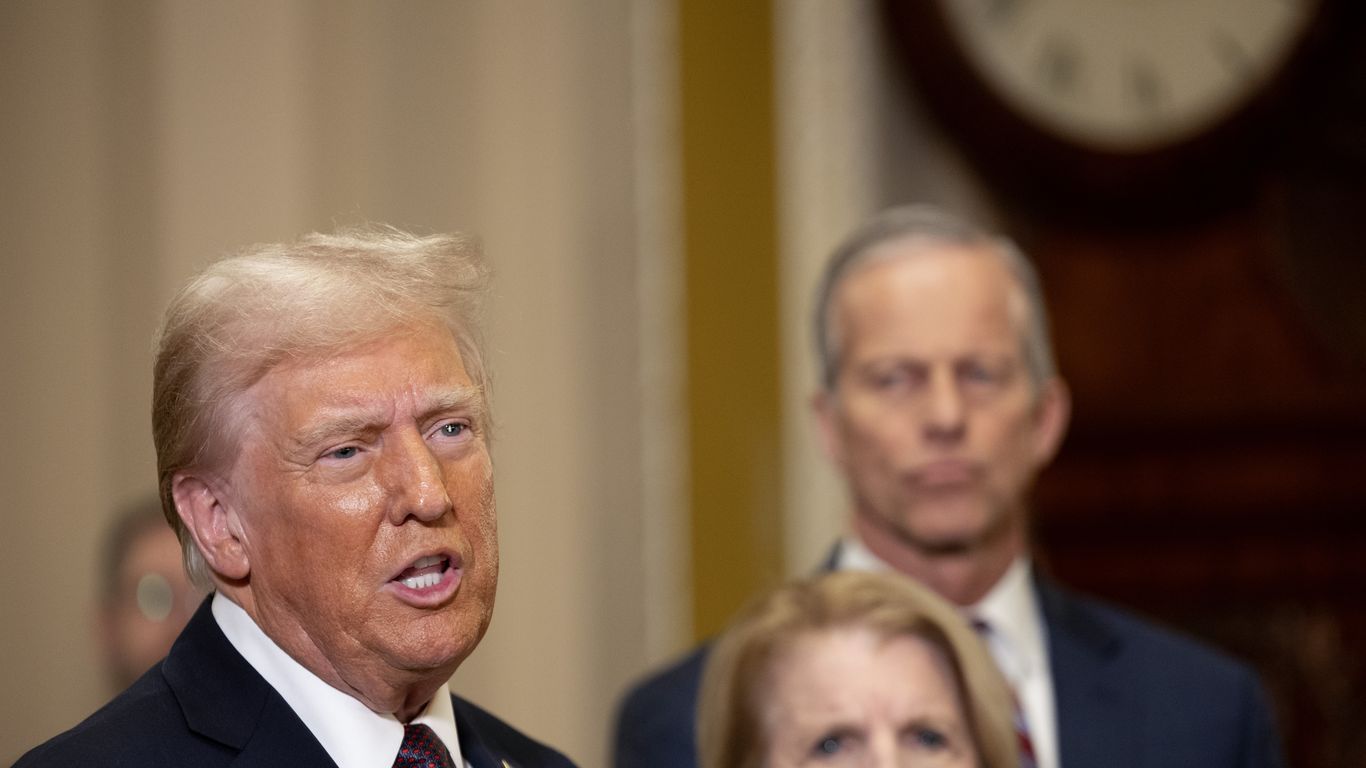Supreme Court Challenge to Campaign Finance Restrictions: Implications for the Role of Money in Politics

Introduction
The Supreme Court has taken up a new challenge to campaign finance restrictions in a case brought by Republicans seeking to overturn limits on party committees spending money in coordination with individual candidates. This case could have significant implications for the role of money in politics and the influence of political parties on elections.
Background
In recent years, the Supreme Court has made several key decisions that have greatly impacted campaign finance laws. In 2010, the Court's landmark ruling in Citizens United v. FEC allowed corporations and unions to spend unlimited amounts of money on independent political expenditures. This decision opened the floodgates for big money in elections and sparked intense debate over the influence of money in politics.
Then, in 2014, the Court struck down aggregate contribution limits, allowing individuals to donate to an unlimited number of political candidates and committees. This decision further loosened restrictions on campaign spending and raised concerns about the potential for corruption and undue influence in the political process.
Current Scenario
The current challenge before the Supreme Court centers on the role of political parties in coordinating with individual candidates. Republicans argue that these limits unfairly restrict their ability to support their candidates, while Democrats fear that removing these restrictions could lead to even more influence and control by wealthy donors.
This case has drawn parallels to a recent Supreme Court decision that limited the power of federal judges to block government policies nationwide during legal challenges. This decision, which was seen as a win for President Trump, has raised concerns about the role of the judiciary in checking the power of the executive branch.
In addition to this challenge, Republicans are also pushing for work requirements to be added to Medicaid, a key component of the GOP's massive domestic policy bill. This has sparked concerns among current recipients, some of whom have jobs but still rely on Medicaid for their healthcare needs.
Conclusion
The Supreme Court's decision in this case could have far-reaching effects on the role of money in politics and the power of political parties in influencing elections. As the case progresses, it will be important to closely monitor any potential changes to campaign finance laws and the impact they may have on the political landscape in the future.
About the Organizations Mentioned
Republicans
The **Republican Party** is a major political organization in the United States, founded in 1854 in Jackson, Michigan, primarily by anti-slavery activists opposing the expansion of slavery into new U.S. territories[1][2]. Its origins lie in the political turmoil following the Kansas-Nebraska Act, which ignited sectional conflicts. The party emerged from a coalition of former Whigs, Free Soil Democrats, and abolitionists united by the ideology of "Free Soil, Free Labor, Free Men," advocating against slavery, supporting free market labor, and promoting modern economic development including railroads, banking, and high tariffs[4][6]. Key early achievements include the nomination and election of Abraham Lincoln as the first Republican president in 1860, whose leadership during the Civil War was pivotal in preserving the Union and abolishing slavery. Lincoln’s Emancipation Proclamation and the party’s role in passing the 13th, 14th, and 15th Amendments were landmark contributions to civil rights and the redefinition of American freedom[2][5][6]. The party dominated national politics from the Civil War era until the Great Depression, during which it was the principal advocate for industrial and business interests, protective tariffs, and national banking[2][5]. Throughout its history, the Republican Party has undergone ideological shifts but has consistently emphasized economic modernization and conservative fiscal policies, aligning with business and technological advancement. The early 20th century saw figures like Theodore Roosevelt promote progressive reforms, while later eras emphasized free enterprise and innovation to drive growth[2][4]. Currently, the Republican Party remains a central force in American politics, influencing policies related to business, technology, and governance. Its historical legacy as the party of Lincoln and abolition continues to be a defining aspect, shaping its identity and appeal, especially in debates over civil rights, economic policy, and national unity[5][6]. The party’s evolution reflects ongoing tensions between tradition and modernization within the U.S. political landscap
Democrats
The **Democratic Party** is one of the two major political parties in the United States, widely recognized as a liberal and progressive organization that advocates for social and economic equality, civil rights, environmental protection, and worker rights. It generally supports stronger government intervention in the economy and social welfare programs such as Medicaid and food aid, funded through progressive taxation[1][3]. Founded in 1848 with the creation of the Democratic National Committee (DNC), it is the oldest continuing political party and party committee in the U.S.[2]. The **Democratic National Committee (DNC)** is the central governing body, overseeing campaign activities, party organization, and the Democratic National Convention. It coordinates efforts across all 57 states and territories, supporting local and state party organizations to elect Democrats at every level of government[1][2]. The current DNC chair as of 2025 is Ken Martin[1][2]. Historically, the party has undergone significant transformations, evolving from its roots as the Jacksonian Party to its current identity emphasizing progressive policies and social justice[3]. The party is known for using the color blue as its symbol since the 2000 presidential election[3]. It has pioneered civil rights legislation and expanded social safety nets, shaping much of modern American social policy. In recent years, the Democratic Party has focused on renewal efforts to address changing public expectations and declining support among certain voter groups. This involves reevaluating policies and strategies to build a sustainable majority amid rapid social and technological change[4]. It also actively fights to protect democratic institutions and voting rights, coordinating a broad coalition of organizations to defend against anti-democratic threats[6]. Currently, the party continues to mobilize grassroots voters and organize campaigns across all levels, aiming to secure electoral victories and promote a fairer, more equal future for Americans—efforts often highlighted in business and technology news for their impact on policy and governance[5].
Supreme Court
The **Supreme Court of the United States**, commonly referred to as SCOTUS, is the highest court in the U.S. federal judiciary. Established by Article III of the U.S. Constitution, it plays a pivotal role in interpreting the Constitution and federal laws, ensuring their alignment with the founding document. ## Organization and History Founded in 1789, the Supreme Court initially consisted of a Chief Justice and five Associate Justices. Over time, the number of justices has fluctuated, settling at nine in 1869[4]. The Court's primary function is to adjudicate cases involving federal law and the Constitution, with the power to review and overturn decisions from lower courts[1][6]. It also has original jurisdiction in cases involving ambassadors, consuls, and disputes between states[1]. ## Key Achievements One of the Supreme Court's most significant achievements is the establishment of judicial review through the landmark case **Marbury v. Madison** in 1803. This decision allowed the Court to invalidate laws deemed unconstitutional, setting a precedent for its role in checking the legislative and executive branches[1][2]. ## Current Status Today, the Supreme Court continues to play a crucial role in shaping U.S. law and policy. It meets annually from October to June or July, reviewing thousands of petitions and deciding around 80 cases each year[1][2]. The Court's decisions often have profound impacts on business and technology, influencing regulatory environments and legal frameworks. ## Notable Aspects - **Independence**: Justices are appointed for life, ensuring the Court's independence from political pressures. - **Influence on Business and Technology**: Supreme Court rulings can significantly impact business practices and technological innovation by clarifying legal standards and regulatory frameworks. - **Symbolism**: The Court is symbolically important, with its motto "Equal Justice Under Law" reflecting its commitment to fairness and impartiality[3].
Federal Judges
## Overview of the Federal Judges Organization The term **Federal Judges** in the United States refers to judges appointed under Article III of the U.S. Constitution, including justices of the Supreme Court, circuit judges of the Courts of Appeals, district judges, and judges of the U.S. Court of International Trade[5]. However, when referring to the **Federal Judges Association (FJA)**, we are talking about a national, voluntary organization of these Article III judges, which advocates for judicial independence, fosters community among federal judges, and engages in public outreach and civics education[6][10]. ## What the Organization Does The FJA’s mission is to support and enhance the role of federal judges within a fair, impartial, and independent judiciary[10]. It serves as a collective voice for Article III judges, especially on issues affecting judicial independence and the administration of justice. The FJA also organizes programs such as the annual “Civics Challenge” for high school students, aiming to increase civic engagement and understanding of U.S. government[10]. ## History and Evolution The federal judiciary itself dates back to 1789, with the number of authorized judgeships growing alongside the nation’s population and legal complexity[4]. The FJA, as a professional association, was established to address the unique needs and challenges faced by federal judges, including protecting their independence—a principle enshrined in the Constitution, which grants federal judges life tenure and protects them from political pressure[6]. Over time, the FJA has become a key advocate for maintaining the integrity and independence of the federal courts. ## Key Achievements - **Advocacy for Judicial Independence:** The FJA has consistently defended the independence of the judiciary, a cornerstone of American democracy[6]. - **Public Education:** Through initiatives like the Civics Challenge, the FJA promotes civic literacy and engagement among young Americans[10]. - **Community Building:** The association fosters a sense of community and shared purpose
President Trump
**Summary of The Trump Organization** The Trump Organization, formerly known as Elizabeth Trump & Son, is a prominent American conglomerate founded by Fred Trump and later led by Donald Trump from 1971. The organization is privately owned by Donald Trump and is involved in a diverse range of businesses, including real estate development, investing, brokerage, sales and marketing, and property management[2]. It operates in various sectors such as hospitality, casinos, entertainment, publishing, and retail[2]. **History and Key Achievements** Donald Trump joined the organization in 1968 and expanded its operations to Manhattan, leveraging his father's financial and political connections[5]. The organization has developed numerous high-profile properties, including Trump Tower in New York City. Trump's business ventures have included licensing his name to various projects worldwide, which has been a significant revenue stream[5]. **Notable Aspects and Current Status** The Trump Organization has faced significant challenges, including the bankruptcy of Trump Entertainment Resorts multiple times[1]. Despite these setbacks, the organization remains a major player in global business. During Donald Trump's presidency, companies connected to him experienced financial gains, with some enjoying increased sales and fewer regulatory investigations[3]. The organization is currently managed by Donald Trump's sons, Donald Jr. and Eric, following his presidential inauguration in 2017[5]. **Recent Developments and Impact** The Trump Organization has been under scrutiny for potential conflicts of interest during Trump's presidency, with critics raising concerns about the emoluments clause and foreign business dealings[4]. Despite these controversies, the organization continues to operate in multiple sectors, maintaining a significant presence in the global business landscape.
GOP
The **GOP**, or **Grand Old Party**, is the widely recognized nickname for the **Republican Party** of the United States, a major conservative political party founded in 1854. It originated from anti-slavery activists opposing the Kansas-Nebraska Act, uniting former Whigs and Free Soilers with a platform centered on halting the expansion of slavery. The party's early historic milestone was the election of Abraham Lincoln in 1860, which precipitated the Civil War; under Lincoln’s leadership, the GOP focused on preserving the Union and abolishing slavery[1][2][3]. Throughout its history, the Republican Party has evolved from its abolitionist roots to champion business interests, industrial growth, and economic policies favoring limited government intervention. In the late 19th and early 20th centuries, it promoted protective tariffs and infrastructure development. The party experienced fluctuating influence, losing ground during the New Deal era but regaining prominence with Dwight D. Eisenhower’s presidency in the 1950s, marked by moderate conservatism[1][2]. Today, the GOP advocates for reduced taxes, conservative social policies, limited government regulation, strong national defense, and states’ rights. It remains one of the two dominant forces in American politics, consistently shaping legislative agendas and national discourse[2]. The party is organized and led nationally by the **Republican National Committee (RNC)**, which manages fundraising, election strategies, and the party platform, coordinating efforts across states and counties under the leadership of a chairman[3][4]. Notably, the acronym "GOP" was popularized in the late 19th century and originally stood for "Grand Old Party," symbolizing the party's legacy in preserving the Union and championing liberty. It is now a common term in political commentary and media[3][5]. In recent years, the GOP has undergone significant membership changes in Congress and leadership adjustments, reflecting its dynamic role in U.S. politics as

















